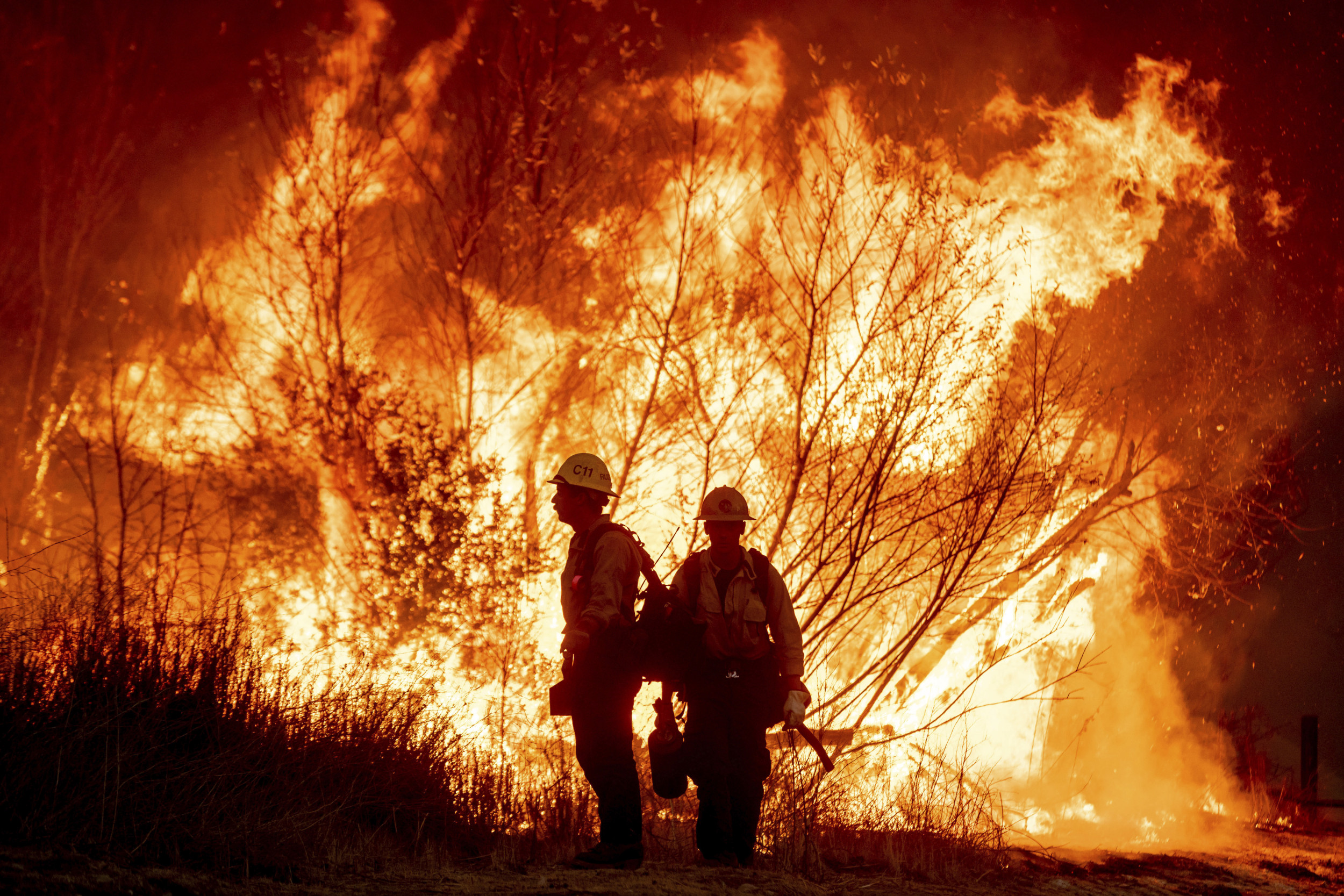When Donald Trump first took office in 2017, the world he inherited—while grappling with challenges like the Islamic State—was relatively stable compared to the inferno awaiting him in 2025. ISIS was on the verge of collapse, major powers were locked in uneasy but manageable standoffs, and the global order was still recognizable. Fast forward to today, and the landscape is drastically different: Russia's war in Ukraine has reignited Cold War tensions, the Middle East has been in flames, China may threaten Taiwan and there is the looming specter of a nuclear Iran.
Moreover, there is already an observable stark contrast in how Trump approaches these crises from the last time around. In 2017, he leaned on experienced establishment figures—generals, diplomats, and advisors—to guide his foreign policy. This time, his inner circle is defined less by expertise and more by personal loyalty, potentially sidelining critical judgment for political allegiance.
Given Trump's psychology, the lowest-hanging fruit will likely be leveraging Biden's perceived failures. Ongoing wars in Ukraine and Gaza provide him with opportunities to redefine U.S. leadership by taking aggressive, unconventional actions that amplify his reputation for boldness while addressing the chaos Biden he will claim leaves behind.

MIDDLE EAST
Trump could dramatically reshape the Middle East, again driven by a narrative of fixing Biden's failures. The immediate challenge is the Gaza war, which is believed to have caused the deaths of some 50,000 people since Oct. 7, 2023. Extraordinarily, Trump already created a sense of urgency by warning in recent weeks that there will be "hell to pay" if the remaining 99 hostages held by Hamas in Gaza are not freed by inauguration day.
Now there are reports that a hostage deal may be imminent – an amazing Trump effect – which, if true and fully implemented, would leave Hamas in power in devastated Gaza after returning the hostages. And if this deal falls apart—as all previous proposals have—there is a very plausible scenario where all this begins with Benjamin Netanyahu receiving carte blanche to minimize humanitarian aid allowed into Gaza and ratcheting up the war.
On Iran, Trump might abandon diplomacy altogether, reverting to maximum pressure policies. This could include military strikes on nuclear sites and harsh sanctions to cripple the regime's funding of proxies like Hezbollah and the Houthis. Trump could make clear that Tehran's destabilizing activities in the region will no longer be tolerated, signaling zero tolerance for noncompliance.
Against the Iran-backed Houthis of Yemen, Trump could adopt a hardline stance, prioritizing the security of maritime trade routes and curbing their regional influence. This could mean backing a renewal of strikes against them by Saudi Arabia and especially Egypt, which has been badly battered economically by the Houthis disruption of global maritime trade headed to the Suez Canal.
On Lebanon, expect insistence that the Lebanese military make good on its promise to secure the border with Israel and keep Iran-backed Hezbollah away—with carrots in the form of massive Gulf aid. And in Syria, Trump may again abandon the Kurds in order to gain leverage on the new regime, run by former jihadists currently trying to persuade the world of good intentions.
UKRAINE
The indifferent views toward Ukraine of some definite and some likely Trump administration officials—key among them J.D. Vance and Pete Hegseth contrast sharply with the urgent need for substantial U.S. aid to prevent Ukraine's defeat within the next 12-18 months. Without new support, Ukraine risks not just territorial losses but a military collapse and complete Russian control. Russian President Vladimir Putin's goal has always been total domination of Ukraine, rejecting any negotiated settlement that preserves its independence. Such an outcome would gravely damage U.S. national security.
Russian defense spending is at unprecedented levels, and the economy, restructured for war, has to this point shown resilience against sanctions, with GDP growth driven by military production. Putin is gambling that Russia can outlast Ukraine, believing that without decisive Western aid, Ukrainian morale and resources will collapse.
Ukrainian forces are stretched thin, facing equipment shortages, troop deficits, and flagging morale. Meanwhile, Russian reinforcements and aggressive advances signal a worsening situation. Putin's confidence in ultimate victory further underscores the urgency of U.S. intervention. But the situation is far from hopeless: over the long term the demographic and economic strains of the war will prove unmanageable for the Kremlin, forcing hard choices. If Ukraine can survive until Russia's day of reckoning comes, it can emerge with its sovereignty intact and deal a grievous blow to Moscow's imperial ambitions. This makes continued—or even expanded—Western aid critical in the short term.
Trump faces a pivotal decision: redoubling American support for Ukraine to prevent strategic humiliation or risking a Russian victory that would only serve as a prelude to continued aggression in Eastern Europe. The outcome will not only shape Ukraine's fate but also define the trajectory of U.S. foreign policy and Trump's presidency. Time is running out for decisive action.
SOUTH CAUCASUS
Biden's vacillation and preoccupation with other regions enabled Azerbaijan's military conquest of Nagorno-Karabakh. This was followed by clear evidence of ethnic cleansing in September 2023, when Azerbaijan drove 120,000 Armenians from their ancestral homeland following a nine-month blockade. The Biden administration avoided calling it by its name, opting instead for passive terms like "depopulation." This moral equivocation has sent a signal of impunity to Azerbaijani President Ilham Aliyev, who now openly threatens Armenia's sovereignty. Without firm action, Aliyev's aggression will continue, threatening a fragile democracy pivoting toward the West.
Georgia, the third country in the region, has pivoted in the opposite direction, away from the West and toward Russia. Its increasingly authoritarian government re-elected itself through manipulated balloting in October, used violence against protesters and journalists in November and December and has accused the United States of being part of a "global war party" and of plotting a coup in Tbilisi. The U.S. recently sanctioned Georgia's de facto leader, the oligarch Bidzina Ivanishvili, but unless the U.S. and European Union raise the cost of Tbilisi's turn toward violent autocracy, it will continue.
While a Trump White House may care little about the democratic credentials of regional governments, it should care about the region's potential in both a positive and negative sense. In the positive sense, a stable South Caucasus can serve as a vital transit corridor between Europe and Asia, and critically, one that bypasses Russia. This would enable trade and energy flows while strengthening the region's independence from neighbors like Russia and Iran. In the negative sense, a descent of the region into chaos and violence would almost certainly invite intervention by Russia, Iran, and Turkey, a NATO member.
CHINA
Trump might expand tariffs on China as part of his broader strategy to counter Beijing's influence. These tariffs could target industries critical to China's economy, such as technology, manufacturing, and rare earth minerals, aiming to weaken China's economic leverage. Trump could use tariffs to pressure Beijing over its actions in Taiwan, signaling that any aggression toward the island would carry significant economic consequences.
The consequences of such tariffs would be multifaceted. For the U.S., they could increase costs for consumers and businesses dependent on Chinese goods, exacerbating inflationary pressures. For China, the tariffs would disrupt key export markets and strain an economy already facing domestic challenges. This economic squeeze could deter Beijing from escalating tensions over Taiwan by raising the costs of aggression.
However, tariffs alone might not suffice to prevent conflict, requiring Trump to pair them with military and diplomatic strategies to ensure regional stability. Under current policy, the U.S. maintains "strategic ambiguity," designed to deter both Chinese aggression and Taiwanese moves toward formal independence. Trump, however, might consider shifting to "strategic clarity," signaling explicit U.S. defense commitments to Taiwan's main island while being cautious about outlying territories. His options could include bolstering Taiwan's defenses, increasing naval presence in the region, or leveraging economic and diplomatic measures against Beijing. But will Trump—who cares little for democracy—go to war with China to save Taiwan and its democracy? That's the major question.
CANADA, GREENLAND, AND PANAMA
This is where Trump's penchant for disruption and entertaining his base risks folly on a new level. Trump's fixation on acquiring Greenland and regaining control of the Panama Canal, which the U.S. handed over to Panama in 1999, seem to underscore his belief that international relations operate like real estate deals. Claiming that both are critical to U.S. national security, he has refused to rule out using military force to acquire them. Trump has also claimed that "merging" Canada with the U.S. would be a boon to U.S. economic security but has pledged to use only "economic force" to make this happen.
Would Trump actually attack Denmark, a NATO ally, over Greenland? Many have dismissed his threats as unserious, but his continued ranting about it have elicited sharp warnings from the Danish, French, and German heads of government. As opposed to Shakespeare's Hamlet, this time it will not be a Danish prince but an American king who will have descended into madness. If so, the U.S. Congress will need to save us.
Colonel (Ret.) Robert Hamilton heads Eurasia Research at the Foreign Policy Research Institute, has been a professor at the U.S. Army War College and served in a variety of overseas posts, including in the Middle East.
Dan Perry is the former chief editor of the Associated Press in Europe, Africa and the Middle East, the former chairman of the Foreign Press Association in Jerusalem, and the author of two books about Israel. He also works with a pro-democracy NGO in Yerevan.
The views expressed in this article are the writers' own.




















 English (US) ·
English (US) ·